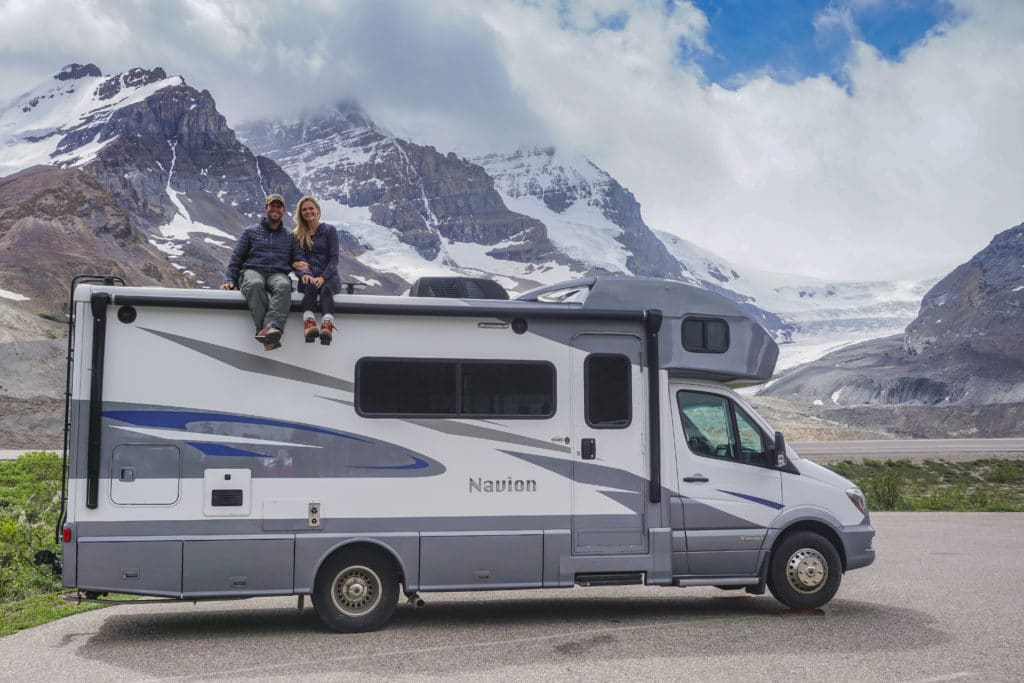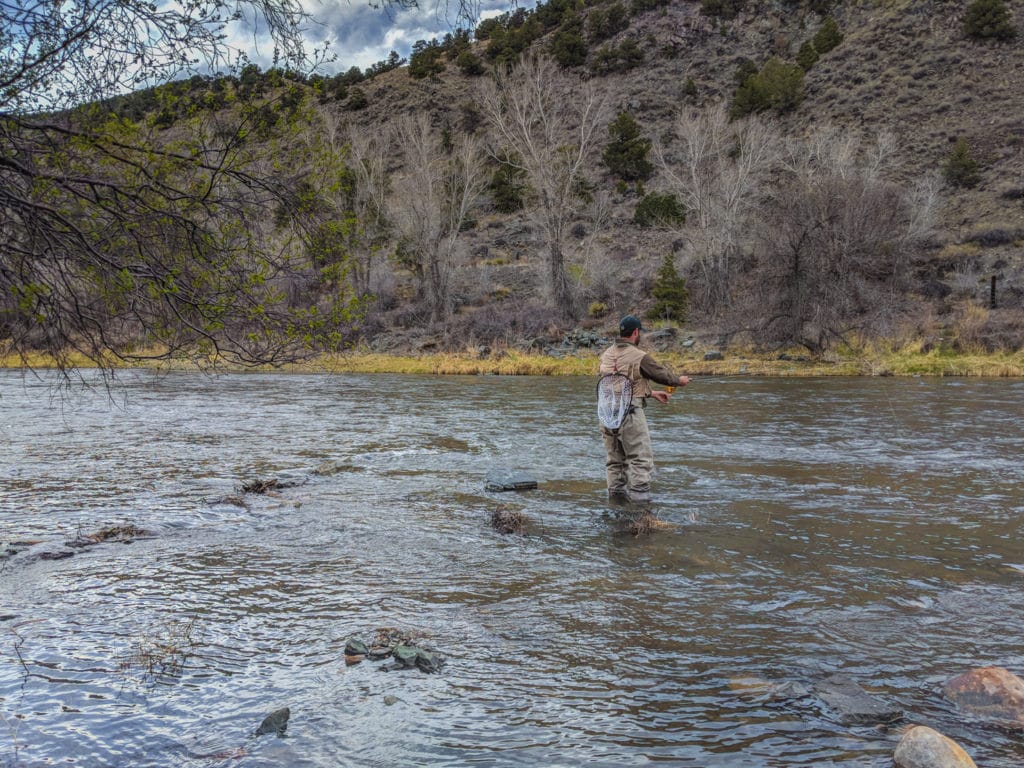Full-time RVing is becoming increasingly enticing. The idea of making life the adventurous, intoxicating journey it was meant to be is the motivation behind many people’s reasoning for ditching the 9-5 routine for an enlivening odyssey on the road.
When you pair the tradition-defying allure of living in an RV with the romantic notion of traveling from destination to destination with your significant other by your side, you have a love story for the ages. What could possibly come closer to a real-life fairy tale?
That being said, it’s important to understand almost no situation is as idealistic as it initially seems. If you’re thinking of diving headfirst into the mobile lifestyle with your own life partner, it’s important to dream big and beautifully. However, you also need to consider all angles through a realistic lense.
Making a transition such as this is no small feat, and honestly speaking, it’s not for everyone or every couple. To help you decide if it’s the right move for you, here are a few tips to keep in mind:
Pin this for later:
Take Several Extended RV Trips Before Committing to Full-Timing
It’s been said that travel is one of the best tests of any relationship, which is why it’s a good idea to plan several extended RV trips before you commit to the full-time lifestyle. Doing so will help you gauge how compatible you are when together in a small space for lengthy periods of time, allowing you to test the waters safely.

Here are a few things to make note of during your “test” trips:
- Travel style
What are your individual travel styles? Does one of you prefer to leisurely mosey on down the road and see where the wind blows you? Does the other person prefer a meticulously planned itinerary? Are you on the same page, or can you at least compromise fairly?
- Communication styles
Do you both enjoy constant communication and deep conversations, or do you prefer to daydream and enjoy keeping your thoughts to yourself? If one person is a Chatty Cathy while the other person likes to quietly ruminate, can you find a harmonious balance?
- Ability to compromise
Because you’ll be with the same person day in and day out, it’s highly important that you learn how to communicate your needs and wants clearly and respectfully. While RVing, you’ll be making many decisions as a unit, so it’s important that both of you are able to assert your stance on something firmly while also being able to compromise on occasion. If one person is always bending to the other person’s will, it will lead to tension down the road.
- Reactions to obstacles
When traveling for extended periods of time, it’s unlikely that everything will go exactly as you planned or hoped. When an obstacle occurs, can you work together in the face of stress to find a peaceful resolution, or do your reactions make the problem worse?
- Dealing with arguments
When you’re in a small space together 24/7, an argument here or there is bound to happen. You are human, after all. The important thing to consider is how you deal with these arguments. Do you manage to communicate respectfully and reach a resolve? Can you find a way to respect each other’s boundaries in that moment and take some space until you both calm down, or does it escalate into a huge blow-up?
- Being away from friends and family
Can you each deal with being away from friends and family for long periods of time? Can you get by with Skype sessions and phone calls? Being separated from loved ones is often an area that takes quite a bit of adjustment. A test trip should help you decide if the distance is worth the adventure!
Talk About Future Expectations
It’s natural to feel so excited about making an adventurous lifestyle change that you forget to think about the distant future. However, having a conversation about what you each expect from life on the road will help eliminate any messy confusion or discrepancy later on.

Before you pile into your RV for good, here are a few things to discuss with each other:
- Kids
Do you each want kids? Do you have any idea of when you would want them? Do you plan on continuing to live in your RV as you have kids, or would you go back to living in a traditional home to raise them? Would you homeschool?
- Careers
Would you each pursue your career or passion while living on the road? Is that something you’d be able to do from your RV, or would you need to develop new skills to get by?
- Longevity
How long do the both of you see yourself living on the road? If one person answers indefinitely, and the other one imagines only full-timing for a few years, that’s an issue that needs to be resolved.
Life changes, and your answers to questions like these may be different from what they initially are once you experience the freedom of RV living. The point isn’t to come up with a rigid life plan, but rather, it’s meant to help you and your partner decide if you’re operating on the same page. When you understand what each other wants and hopes to get from the RV experience, you’ll both fare much better as a unit and as individuals.
Plan How You’ll Manage Personal Space While RVing
Personal space is a hallmark of any healthy relationship, but when you’re living in something less than 500 sq feet, it can take some thoughtful, intentional efforts to make sure it happens. Because it’s not as simple as seeking solitude in another room, it’s helpful to brainstorm some ideas on how you can give each other some breathing room in advance. This way, it never has to become an issue in the first place.
Here are a few suggestions to help you get started:
- Expand your living space with an RV awning room. These are designed to attach to your RV awning to create an entire other room, which can help dramatically when you’re in desperate need for some solitude. Make it comfy inside, zip it up, and enjoy the peace and quiet.
- If you’re at a campground with easy access to any walking trails, a swimming pool, or a clubhouse, simply let your significant other know that you’re going to take off and wander around for a few hours by yourself.
- If you have the resources, rent a cabin or book an Airbnb. It’s nice to change things up every now and then, and spending a few days with some extra living space can make all of the difference.
- Most RVs have a door that separates the bedroom from the other areas. If you don’t have any other option, you can ask your partner for a few hours of alone time to sequester yourself away in the bedroom.
Above all else, it’s important to cultivate an open communication line. If one person voices that they need to recharge by being alone, get creative and find a way to make it happen.
Discuss How You Will Divide Up Responsibilities While RVing

Just like any household, there are many responsibilities that come along with living in an RV. Between routine home chores, such as washing the dishes, paying bills, etc., to more RV-specific tasks like dumping the holding tanks and performing mechanical maintenance, it’s important to split the responsibilities in a fair way.
Many RV couples split the chores by having one person handle the mechanical issues while the other person handles most of the housekeeping items. How you divide things up is up to you, but just remember that making it fair and even will help prevent resentful feelings from brewing down the road.
Assess Your Financial Situation
While you certainly can make it in an RV by living frugally, many new RVers are surprised by how expensive it can be. Campground rates, gas costs, insurance premiums, food costs, entertainment outlets, and emergency maintenance funds can all add up. It’s often less expensive than owning a traditional home, but you’re still going to need some cash to work with.
This is why it’s important to make sure you can afford the RV lifestyle you want before you set out. Nothing kills enthusiasm (or romance) faster than fighting or worrying about money, so it’s important that you make sure you both agree on what lifestyle you want and how to make it happen.
If someone is a spender and the other is a saver, it’s obvious how tension can build. This is why it’s extremely helpful to come up with a budget before you get started and make sure both of you will be accountable for sticking to it.
Make Sure You Account for Yourself Individually
Spending quality time with your significant other is a beautiful thing, especially when you’re exploring new territory in your RV while taking in breathtaking sights. That being said, it’s important to preserve your individual identities as well. You’re each still your own unique person, and as with any relationship, it’s healthy to indulge your own interests.
Make a list of what’s important to each of you, have an honest talk about if/how you can make it work from the road, and discuss what compromises you’re willing to make. If one of you is an avid movie buff and the other loves to paint, you can absolutely find ways to participate in those hobbies no matter where you’re at.

Remember, you’ll love each other more if you each take the time to love yourself as well.
Happy Trails
As you can see, making the switch to full-time RVing with your significant other is a decision that takes quite a bit of forethought. You’ll be hard-pressed to find a couple on the road who would ever do things differently, but remember, very few of them made that decision overnight.
Traveling freely into the unknown with your significant other by your side is one of the most romantic notions you can think of, but you’ll fare much better if you balance your idealism with practicality. If you can do this, you’ll come to the right decision on what is the best path to take.
Here’s to the adventure of a lifetime!
Darla Preston is a writer based out of the outdoorsy state of Colorado. The road is her true home, especially when accompanied by her husband and blue heelers. She loves sharing travel advice with her fellow wanderers, and she equally loves learning from them and their experiences.


